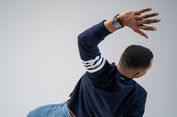7 Biggest Diet Myths
Exercise is not a very effective way to lose weight, researchers say. The amount of exercise needed to lose even a single pound -- if diet is not rethought -- is more than most people can do, Apovian said.
If you are just exercising, the scale is unlikely to budge, agreed obesity researcher Susan Carnell of Columbia University. "You can make a better impact by controlling what you eat."
But don't give up your exercise routine. In addition to a host of general health benefits, including protecting your brain, heart and bones, exercise is great for maintaining weight and regulating appetite, Carnell said. In fact, a daily habit of intensive exercise is the shared trait among once-overweight people who successfully stay slim, Apovian said.
Beer gives you a belly.
Alcohol, however, may be in a separate class, as far as liquid calories go.
At 7 calories per gram, alcohol is what scientists call a "non-trivial" calorie source. (A gram of fat has 9 calories, while protein and carbs, including simple sugars, have 4 calories per gram.) So imagine their surprise when, in a 13-year study of 19,220 U.S. women, teetotalers were more likely to become overweight than women who regularly imbibed beer, wine or liquor.
The link remained even after accounting for a slew of lifestyle factors, including exercise habits, nutritional intake and smoking status. "We are quite confident that the association we observed is due to the biological effect of alcohol," lead researcher Dr. Lu Wang of Harvard Medical School told LiveScience.
She cautions, however, that the study followed women who were initially a healthy weight, and does not promote alcohol as a weight-loss tool. The study was published in the March 2010 issue of the journal Archives of Internal Medicine.
Juice detoxes, smoothies and diet sodas are effective weight-loss tools.
In our hunter-gatherer days, "we didn't have a lot of liquids with calories, explains Dr. Caroline Apovian, an obesity researcher at Boston University. As a result, our bodies today interpret beverages as having fewer calories than they actually do and find them less satisfying than solid food and so we eat more to compensate.
Many scientists think non-diet beverage consumption -- those with sugar -- contributes to excess weight gain. And while often villainized, sodas are not the only culprits. Juices, smoothies and various "health drinks" can also confuse our internal calorie-counters and make weight difficult to control.
What about diet drinks? People who regularly slurp artificial sweeteners are more likely to gain weight, according to a study published in the journal Obesity in 2008. The most touted explanation for this finding is that fake sweeteners increase cravings for calorie-dense foods, but the science behind this theory is mixed. Still, if you want to play it safe while tightening your belt, stick to water.
Simak breaking news dan berita pilihan kami langsung di ponselmu. Pilih saluran andalanmu akses berita Kompas.com WhatsApp Channel : https://www.whatsapp.com/channel/0029VaFPbedBPzjZrk13HO3D. Pastikan kamu sudah install aplikasi WhatsApp ya.




































